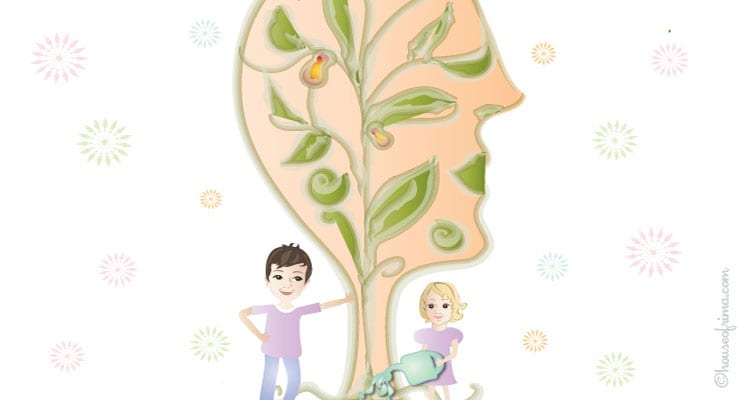“The noblest pleasure is the joy of understanding.” – Leonardo da Vinci
“I’m never going to drive when I grow up,” my 5-year-old son, Alessio, says in his quiet, determined way.
“I am,” his sister, Sienna, replies. She is three. “I’m going to drive a pink convertible, and I’m going to drive it really fast.” She is practically bouncing off the walls with glee. She is a whirlwind as she runs through the house, pretending she is already in that pink car.
I have to laugh. Their future visions match their personalities so perfectly.
Experts say that there are basically 3 types of toddler personalities: easy, shy and spirited. Though I tend to resist labels, there is something to these broad categories.
Sienna is “spirited,” as my pediatrician calls her. She is more demanding than my son, sleeps less, argues more, and needs less time to move from one activity to the next.
Alessio, on the other hand, is shy. He is more contemplative. He thinks before he speaks, needs time to himself, and more time to transition from one activity to the next.
For what it’s worth, I have no “easy” children, though about 40% of kids are “easy,” according to Dr. Harvey Karp. This means they don’t demand much, generally like people, and “get up on the right of side of bed.”
Most families have a mix of personalities among siblings, which makes parenting an even greater challenge. What works with one, fails with another. Some kids need less direction and others more. There is no one-size fits all parenting. But successful parenting takes into account both your child’s personality and your own. How would you describe your parenting style? Tiger Mom, Hover Mom, or Laissez Faire? Good parenting is often a mix of all three, depending upon your child’s needs.
In a 3-year study from the University of Washington, psychologists researched which parenting styles work best with which kids. “The right match of parenting style to the child’s personality led to half as many depression and anxiety symptoms in school-aged children. But mismatches led to twice as many depression and anxiety symptoms during the same three years.”
The study results help parents understand how to better match their responses and parenting style to their child’s needs.
- Overall, children who were good self-regulators (able to regulate their own emotions and actions) had less anxiety, regardless of parenting styles.
- Children who were good self-regulators, but whose parents offered high levels of guidance, experienced more anxiety.
- Children with low self-regulation benefited from more parental guidance and structure. If a child with low control had a hands-off parent, the child experienced more anxiety.
No matter what your child’s personality or your own parenting style, the key is helping our children become good self-regulators. This means knowing when to stand back and when to hover, and how to recognize our children’s cues. It’s a relief to know we don’t all have to be Tiger Moms or Laissez Faire parents. Maybe parenting is easier than we think, as long as we keep listening and stay connected to our kids.
Ciao,
Princess Ivana





